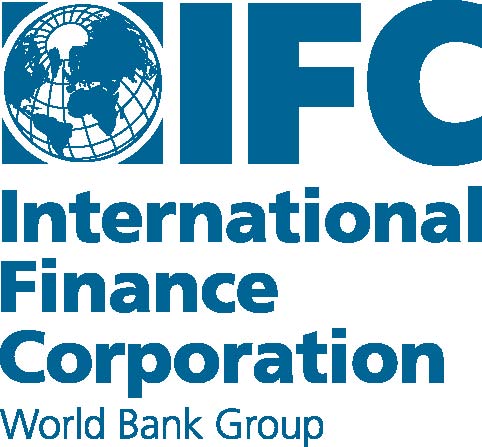Moody’s has fixed its credit rating for Egypt at “B2” with a stable outlook. The global credit rating agency said it maintained its outlook for the Egyptian economy due to what it described as a track record of economic and structural reforms that helped Egypt absorb the economic shock caused by the coronavirus pandemic.
In a report released on Tuesday, Moody’s said the fruits of Egypt’s economic reforms, represented in a strong foreign exchange reserve sufficient to cover external debt payments and a large-scale domestic financing base, contributed to insulating the country from the capital outflow wave that has swept other emerging markets due to coronavirus.
Moody’s added that its view of the Egyptian economy stems from the latter’s increased competitiveness supported by the local currency’s improved performance following the 2016 flotation and the Zohr mega gas field development, which strengthened investment in the energy and other sectors.
Moreover, the credit rating institution gave “Ba” evaluation on the effectiveness of Egypt’s fiscal policy to reflect the structural shift towards achieving initial government surplus in the fiscal year (FY) 2019 and 1% surplus of the country’s gross domestic product (GDP) over the next few years. However, it will be exposed to pressure in the short term caused by the outbreak of the coronavirus.
Moody’s said the structural reforms included applying VAT and liberalising the fuel pricing system, in addition to maintaining sustainable financial adjustments. Other reforms included reducing interest rates in line with the inflation rate targeted by the Central Bank of Egypt (CBE).
Moody’s also gave ”Ba” rating to Egypt’s monetary and macroeconomic policy, reflecting the CBE’s successful efforts in keeping exchange rate relatively stable. This is especially since it decided to liberalise the local currency against the US dollar between 2016 and July 2019. Afterwards, inflation rates witnessed frequent record declines within the CBE’s target range.
Furthermore, Moody’s classified Egypt at Ca level for fiscal strength, which reflects albeit declining government debt burden after the high debt volumes witnessed following the 25 January Revolution. The agency noted that Egypt’s debt rates have gradually started to decline.
Notably, Moody’s projects 4.4% growth for Egyptian economy by the end of FY 2019/20, which ends in next June.
It noted that the Egyptian government’s economic reform measures that have already resulted in high growth rates constituted a major reason behind the country’s economic strength. This is particularly in dealing with the repercussions of the coronavirus outbreak, reducing the risks on the economy and various social classes.
Moody’s emphasised that the CBE’s decisions and measures taken by CBE over the past few weeks have helped strengthen the economy. They have also reduced the risks and repercussions of the ongoing pandemic, both locally and internationally.
The CBE has already put into effect several measures since the beginning of coronavirus outbreak, including a historic 3% interest rate reduction. This is the first time a cut of this amount has been made in one go. The CBE has also decided on a six-month extension on the repayment period of loan instalments by customers and companies to help alleviate stress.
Moody’s added that the availability of liquidity in Egypt’s banking sector reduced the chances of the economy’s exposure to risk. The agency also said that Egyptian banks have ample cash stocks, increased profitability and flexibility in their credit performance, which supports its positive “Ba” evaluation.
Moody’s believes Egyptian banks have a stable domestic financing base, with a proven track record in support of government initiatives during crises. This highlights their positive “Ba” outlook regarding banking sector risks, which enhances the sector’s ability to maximise its contribution to financing the public budget deficit if necessary.
The solidity of the financing structure enjoyed by Egyptian banks, in addition to abundant cash liquidity, increasing profitability, and flexible lending systems, make it less risky.
Moody’s stressed that the situation for Egypt’s foreign liquidity is considered good, supported by the CBE’s efforts in rebuilding an abundant reserve of foreign exchange. This can absorb the shocks resulting from the sudden exit of capital due to the ongoing coronavirus outbreak.
The finance agency believes that Egypt’s high economic growth rates have contributed to an 8% reduction in unemployment rates during the last quarter of 2019. This means Egypt is now nearing the lowest unemployment levels in decades, enhancing Egypt’s ability to absorb the shock caused by the coronavirus. Moody’s projects that inflation at the end of June will record 8.5%.
Moody’s highlighted the preventive measures the Egyptian government was quick to take against the spread of the coronavirus, to protect the lives and safety of citizens.
Moody’s warned that the economic consequences of the coronavirus may be more clearly evident during the FY 2020/21. It expects a decrease in economic growth to 2.7% if the virus continues to disrupt the tourism, investment and commercial sectors.
It pointed out the decline in public debt to 84.2% of GDP at the end of last year, compared to 103.5% at the end of 2017. Moody’s expects that debt ratios will continue to decline due to the economic shock of the coronavirus.




